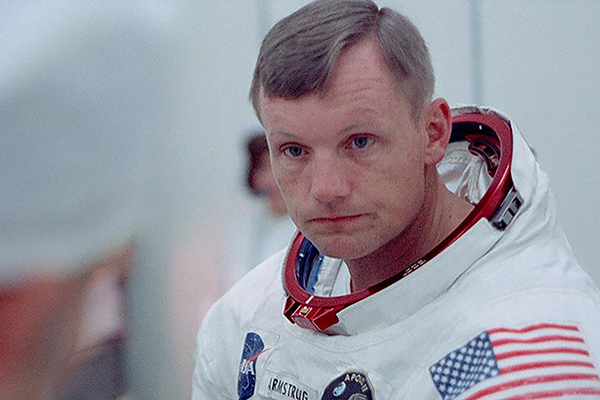Apollo 11’s mission to the moon was among the greatest achievements in world history, but sadly it wasn’t captured with today’s high-definition video cameras.
Instead we’re left only with grainy footage showing Neil Armstrong stepping on the moon and Walter Cronkite describing the action.
Then again … maybe not.
A new documentary, appropriately named “Apollo 11” (G), brings that 50-year-old mission to life thanks to a newly discovered batch of 65mm film and more than 11,000 hours of uncataloged audio recordings — most of which we’ve never seen or heard.
The result is a 90-minute movie that approximates modern film technology and makes you feel like you’re living in 1969.
It’s among the best documentaries I’ve seen and — minus two moments of coarse language — is squeaky-clean for the entire family.
“Apollo 11” was directed and edited by Todd Douglas Miller, who is best known for his work on another documentary, “Dinosaur 13.”
Miller said he wanted to avoid using the popular, famous footage the public already had seen, and he succeeded.
For example, the iconic black-and-white film of Armstrong stepping down the ladder isn’t even in the movie. Instead, we watch a color film that was recorded inside the lunar lander by his crewmate Buzz Aldrin.
Never-before-seen
The rest of “Apollo 11” follows a similar pattern as we enjoy never-before-broadcast footage of event after event.
Instead of grainy television footage of the launch we’re treated to an up-close 65mm footage of the rocket lifting from the pad and piercing the clouds. That alone is worth the price of admission.
The movie also succeeds because it has no narrator. We only hear the astronauts, the Mission Control workers, and Cronkite. His booming, nostalgic voice sets the tone.
At the beginning of the movie we watch the mammoth Saturn V rocket make its way to the launchpad on the crawler-transporter.
Later we watch the astronauts donning their suits and climbing into the capsule.
The movie ends with the world celebrating their return.
It’s the miniscule details recorded on once-forgotten footage the day of the launch that makes the documentary entertaining: Americans drinking coffee on the beach, lining up at concession stands, waking up in a Florida campground and cramming together on a hotel balcony — all ready to see history being made.
The launch happened when coffee was 5 cents, beehive hairstyles were in and everyone wore crazy-looking glasses. (Yes, those details are in the film too.)
“Apollo 11” is a must-see film for those who lived through it and those who are learning about it in school for the first time.
It’s inspiring and educational and it contains a few edge-of-your-seat moments that will surprise you.
The film celebrates achievement, teamwork and our shared humanity. It also raises a few worldview questions, led by Buzz Aldrin’s pronouncement that the mission was a symbol of the “insatiable curiosity of all mankind to explore the unknown.”
Imago dei
But why do we have this insatiable desire to explore?
Perhaps it’s because God planted within us a hunger to discover what’s out there. Perhaps it’s because God’s universe is so incredible it’s worth exploring.
Or perhaps it’s because we have the imago dei — the image of God — that gives us the ability to build rockets and learn more about God’s creation.
Whatever the reason, “Apollo 11” is worth watching.
Content warnings: The film contains no violence or sexuality and two coarse words (a muffled d–n by Collins from space and h-ll heard in the John Stewart song “Mother Country”).
EDITOR’S NOTE — Michael Foust covers the intersection of faith and entertainment as a media reviewer for The Alabama Baptist. He also is the husband of an amazing wife and the father of four young children.






Share with others: